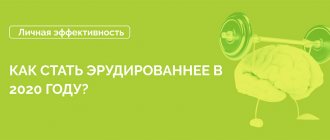In recent decades, social time has outpaced natural time. This means that during the life of one generation, he has to constantly learn, adapt to a dynamically changing world (its social aspect), become more perfect, faster, smarter, and keep up with market demands. Social time begins to flow faster, although the technosphere has simplified life and freed up a lot of time, there is always not enough of it, especially at work. There is hardly anyone who is not familiar with such cases.
There can be many reasons for the shortage: wasting time on conversations, spending time on the Internet, the hope that part of the work can be assigned to employees, work is not a wolf, lack of motivation. We will present a dozen techniques and recommendations, the implementation of which will relieve any person of the question: “How to learn to work faster and more efficiently?”
What is multitasking
This concept came from the West, with new teaching technologies. Multitasking is the ability to perform several tasks at once. This could be several types of activities performed by a person in parallel, or the ability to break several tasks into their component parts so that they can be returned to without compromising the final result. For a modern person, multitasking is understandable in the following examples:
- Working on a computer while talking on the phone;
- Watching TV and newspapers;
- Driving and talking on the phone.
It would seem that such multitasking would not surprise anyone today. But for more complex and responsible tasks, distraction to solve other problems requires a lot of concentration. In order to ensure that the quality of the work performed does not suffer, well-developed skills are required. Research has shown that multitasking is not productive. The fact is that a person is capable of solving problems in any field of activity in a rather limited sector. He is able to perform one task efficiently without being distracted; in addition, constant switching from one type of activity to another is stressful both intellectually and physically. Constantly multitasking is not conducive to productivity.
Find time to relax
Practice shows that no matter how interesting an activity is, the concentration of attention on it decreases after 30-60 minutes of immersion in the activity. In view of this, it is recommended to periodically take breaks and switch to other activities.
It’s not for nothing that many industries have 5-10 minute breaks every hour or two.
Depending on the type of activity, this time should be spent on exercise or warming up, or vice versa, sit down and rest a little, drink something or have a snack. The main thing is to radically change your state: if you were sitting at the computer, spend an active break; if you stood at the machine, it’s better to sit down.
How to improve your learning ability
If you constantly act according to a pattern, over time your memory weakens and your concentration decreases. Habit does not allow us to use our potential. In order for new information to be well absorbed, so that it is easier to find solutions in non-standard situations, you need to maintain mental flexibility. The brain must constantly process new information, look for non-standard solutions and ways. In order for the nerve cells to awaken to active activity, you need to train constantly.
D.L.: It is very correct if there is the possibility of rotation in the accounting department. For six months I sit on some accounts, and for the next six months I can sit on others. The opportunity to switch so that in two or three years I could master the entire accounting department in depth. And two years later I am assigned to draw up a balance sheet instead of the chief accountant, he delegates it to me. He, of course, will double-check everything, but, in general, I do consolidated management or tax reporting myself. In such a situation, my desire to move forward will not disappear. From a young age you need to accustom yourself to constant development. To build a process of continuous learning, the accounting department can subscribe to two or three professional journals. The main thing is that they are actually read regularly, so that every week a specialist learns something new and interesting in his field.
A.S.: It is useful to have a subscription to the mailing list of professional publications, for example, Accounting Online. This allows you to be aware of all changes coming into force and planned in order to understand how to rebuild your work. In a separate table I record what changes are planned and copy the link to the source there
And when the time comes, for example, another year comes, I already know what has changed and what is important for me to take into account. I also collect data in tables on how the minimum wage changes in different years, rates for calculating contributions, etc.
It's not the most immediate information, but it's always there when I need it.
In order for information to be well absorbed, a person must have developed short-term or operational memory.
A.L.: There are special exercises to improve memory. Written speech also develops intellectual abilities well. And it’s handwritten. Because fine motor skills are involved in this process. It is useful to read fiction. Reading means new words, new stories. Drawing is also useful. This is training for the synchronous work of two hemispheres. As a result, the reaction speed increases, thought processes accelerate, and a person reacts faster to new situations.
You shouldn’t take on many aspects at once. It is a myth that a person can simultaneously solve several problems and study materials on several large-scale topics. In this case, the efficiency decreases significantly. It's better to concentrate on one thing at a time. And only then take on another task.
Also, the ability to assimilate information is affected by such trivial things as physical activity, nutrition, and walks in the fresh air.
D.L.: You need to eat natural food, eat more vegetables and fruits, but eat less meat, and move a lot. And at the time of learning, it is better to keep yourself completely hungry, then the information will be absorbed even better. Because when we are very full, especially fast carbohydrates and some sweets, this, on the one hand, feeds the brain, and on the other hand, all the information that we remember quickly burns out. And we need long-lasting carbohydrates, various cereals without milk, cereals, fiber, carrots. All this contributes to the absorption of information.
Helpful advice
Want to know how to develop memory? Read about this in the article “Rules for a Good Memory.”
Want to keep your mind sharp? Read about how and what kind of mental exercises you need to do.
What are the benefits of plants at work?
In order for your brain to function normally and be able to effectively cope with all planned activities, you need fresh air. Since it is not always possible to work in well-ventilated areas, the presence of plants near your workplace will significantly improve productivity and the general condition of the body.
In addition, it has been proven that plants help increase your concentration and also help you focus on the tasks at hand. Unsurprisingly, plants can also influence your creative thinking. So, by placing several pots of green plants in the room where it is most convenient for you to work, you can increase your creativity by 45%.
This is a good helper in your work if you are often worried about where to get new creative ideas. Greening your premises will increase your productivity by as much as 38%. Another plus in favor of plants in the workplace is that they improve the overall functionality of your body, saturating it with oxygen by 47%. In conditions of frequent work at the computer, especially when there is a lot of work and you hardly go out into the fresh air, this will help maintain your health and well-being.
Plans for every day
If the work is not monotonous, you are faced with a large-scale goal, stretched over time over months, it needs to be fragmented. Moreover, it needs to be broken down to such a level that the notebook, the role of which is now played by organizers, contains entries for every day. Especially if you are not an ordinary worker, but have at least several people subordinate to you.
Daily tasks and self-control will stimulate you, help you achieve small victories, see progress, and allow you to learn how to work quickly. At the beginning of each working day, if you have subordinates, we hold a “planning meeting”, where we summarize the results of the previous day and distribute tasks for today. If the plan is large-scale and involves the same type of work, we conduct such events less frequently, controlling the process and not allowing employees to slow down or even increase it.
Does multitasking help you at work or not?
Almost everyone has heard that Caesar could do three things at once. And many build their work schedule on the same principle, performing several tasks at the same time or doing work while listening to music, talking on the phone, or watching TV. But is it really useful and does it actually improve productivity?
In fact, studies conducted in several countries (Japan, Singapore, UK) have already proven that multitasking is just an illusion. Our brain is not able to solve several problems at the same time, and this only reduces our performance.
As a result, you will not complete a single task, but will spend a lot of time and nerves switching from one activity to another. In addition to the fact that you do things at the same time, monitoring mail, instant messengers, and news feeds every 5-10 minutes also harms your efficiency.
After all, the brain needs at least fifteen minutes to switch from one task to another. In addition, multitasking contributes to anxiety and even depression, and also has a bad effect on the ability to remember. In general, when you multitask, you lose about 40% of your productivity.
Fifteen minute rule
To understand how to learn to work correctly, you need to listen to your biological rhythm. Some people experience physical activity early in the morning; for some, inspiration comes only at sunset. In any case, you should begin any work gradually. First, you need to set yourself a time period of fifteen minutes. After its completion, it is recommended to rest a little or simply get distracted (a few minutes are enough), then start working again. Every day the period of time should be increased until the need for it completely disappears (the body itself will signal the desired rest). This simple exercise guarantees no fatigue and increased productivity after such pauses. This practice will be especially relevant after a vacation or a long break from work.
Priority
Before starting any activity, decide on your priorities: arrange the planned events in order of their importance, starting with the urgent and more significant. You should learn to divide or classify tasks into urgent ones, which must be completed within a specified time frame, and important ones, which must be completed, but are not so limited by time frames
Important may be not only those tasks set by a higher-level manager, but also those that directly affect other employees, forcing them to stand idle. As an example: in furniture production, first of all, you should take on cutting the material, so that everyone who will work with it will not be idle, and then - on other work if you have several operations assigned to you.
Structuring tasks
It will be useful to be able to group similar tasks according to some criterion and draw up a plan and/or schedule for their implementation. It is better to deal with complex tasks step by step, breaking them into small steps. Thus, progress is noticeable, and psychologically you will know that it is there, no matter how large-scale the task. The approach also allows you to control yourself independently, analyzing ways to achieve a goal, their feasibility, seeing how close you are to the goal, how to achieve it faster, etc.
Achieving every small victory/goal can be rewarded, whether it's a tasty treat, a new item, or an outdoor getaway this coming weekend.
Why are you studying
It is very important to ask this question to yourself, a subordinate, or a child who is mastering the school curriculum. The learner’s motivation and, of course, success largely depend on whether there is a goal and how it is formulated.
In addition, the criteria by which we plan to evaluate learning outcomes must be formulated.
A.L.: It is important to understand why training is needed at work, what I want to learn and what I want to get as a result. A goal must have a deadline, and this is what distinguishes it from a dream.
And you definitely need to think about what restrictions there are, what might interfere if you have any taboos on the way to your goal. For example, you can only study once a week on weekends. Also think about what criteria you will use to evaluate the result, and record intermediate results. So, when a person begins to study vocals, a recording is made of how he sang before classes, a month later, two months later, so that the dynamics are visible. An indicator of dynamics can be time: at first I spent two working days creating this report, and now it takes two hours.
Let's show this with an example. Now I am an accountant-cashier, in six months my colleague, a payroll accountant, is going on maternity leave. And I have the opportunity to take this position if I manage to master this area of work. I make a list of knowledge and skills, split them into six months, and the chief accountant and I agree on how we will monitor the results. We will test our knowledge through testing and solving real practical problems. Also the criterion will be the time I spend on certain operations. Now it takes me two hours to calculate the salary of one employee, and in six months it should take no more than 20 minutes.
A.L.: It is also very important to determine the criterion on the basis of which it will be possible to conclude whether success was achieved or not. Let's say you want to speak English fluently in a year when you go on vacation.
What does it mean to you to speak a foreign language fluently? Ask how to get to Big Ben, or the ability to talk freely, without a dictionary, for example, on such complex topics as nuclear physics?
Why do we sometimes fail to realize our goals? For example, has learning a foreign language been put on the back burner for several years now?
A.L.: We often set too ambitious goals. We don’t think about the risks, about what could stop us on the way to this goal. Are there any internal limitations? Are we ready to conquer this peak? Sometimes it's scary to start
Then it is important to do at least something, even if it is a small, simple action. It happens that there is not enough supportive environment: it is difficult to cope alone
Then the person goes to advanced training, English language courses or to the gym, for example. He comes and understands that he is not the only one who cannot do this, there are people who are ready to learn with him.
Concentrate
The goal determines the return you want to receive. The concentration zone determines the activities that are worth spending time on. The goal is the result. The zone of concentration is the path. A goal points to the future you intend to achieve. The concentration zone connects you to the present. In the field of sales, the goal is formulated, for example, the desired income or a certain number of new customers. In production - the amount of cost reduction. Meanwhile, areas of focus in sales may include proactive communication with potential clients, and in manufacturing, areas worth exploring to reduce costs. Of course, these two approaches are not mutually exclusive. You can have both a goal and a zone of concentration. Moreover, some will even insist that both are necessary, since the goal indicates where you are going, and the zone of concentration indicates how you plan to get there.
Effective Techniques to Increase Productivity
In the pursuit of improving their efficiency at work, almost everyone has tried various efficiency techniques. Time management is trending now, so everyone is trying to find the most effective way to increase productivity and cope with their entire list of plans.
For your work to be truly effective, you must not forget about rest. According to research, 86% of working people believe that rest breaks make them more productive at work.
There is an excellent technique for improving efficiency that many workers use, especially when the amount of work is quite large and sometimes you have to work more than normal. This technique is called Pomadoro. Its essence is that you devote yourself completely to work for 25 minutes, and then take a 5-minute break.
After 4 such circles, you take a 30-minute rest. This technique is very good at improving productivity and unloading the brain. It is ideal if during such breaks you will not be distracted by gadgets, viewing social networks, or email.
Relieve tension from your eyes and spine - get up from your desk, walk around the room or do a little warm-up for your body. This way you can handle a lot of work without feeling overly exhausted.
The right food for efficiency
Proper food is no less important for effective work than healthy sleep. First of all, it should be beneficial and energize the entire body. If you are used to eating junk food, especially fast food, it is better to give up your habits. The sooner you start eating right, the faster your efficiency will increase by as much as 20%.
Remember that the right food also applies to drinks. Alcohol, carbonated drinks, and excessive coffee consumption also negatively affect your productivity. And if you like to use energy drinks to increase your productivity, you risk getting serious problems with the cardiovascular system.
In addition, it is only the appearance that they improve productivity. In fact, the surge of energy occurs for less than an hour, but after this there is severe inhibition of the body and a drop in efficiency.
Do not forget that in addition to the fact that food should be correct, it should also be regular. Especially don't forget about breakfast. It is what triggers brain activity and saturates our body with energy for productive work.
Steps
Method 1
Set yourself up for success
- 1
Explore resources.
Sit down and make a list of what you think will be on the exam or test. Then write down any resources available to you to help you learn the information, such as a practice exam or a prep group.
- 2
Create a curriculum.
Give yourself more time than you think you need.
Once you decide what exactly you need to learn and how you will use the resources available to you, create a study schedule. Set aside a period of time in your schedule to devote to studying and stick to the plan.
- 3
Think positively.
You need to think as positively as possible when you take on your studies. If you are emotionally distracted, you will be less productive in learning and absorbing information. Try to think positively and don't compare yourself to others.
- Try telling yourself something positive before you start studying, for example: “I will definitely pass this exam with flying colors!”
If you notice bad thoughts appearing, for example, “I will fail this exam,” stop them. Replace them with positive thoughts, for example: “I will master the material well and pass the exam!”
- 4
Find a quiet place with few distractions.
Where you study affects how productive you are in your studies. If you're constantly distracted by the TV, the internet, or your roommate, you won't study as effectively as you would in a quiet place with fewer distractions.
- Use the library. Find a cozy, less crowded place and start studying.
You can spend the afternoon studying in a quiet café.
- Study while your neighbor is at work or in class, when you are home alone.
Method 2
Use effective methods
- 1
Do intervals.
Long periods of studying without breaks will in no way contribute to effective learning of information. To be productive, you need to take regular breaks while working. Try studying in 30-minute intervals and taking a 5-10 minute break at the end of each interval.
- 2
Test yourself.
Use flashcards and practice exams to help you learn the material more effectively. A practice test will help you learn the information you need much better than just repeating it. You can make cards with text and pictures to test yourself. You can also create a practice test for yourself or ask your teacher to give you a practice exam.
- 3
Use as many senses as possible.
Some people remember information better if multiple senses are involved in the learning process. One way to integrate multiple senses while studying is to read your notes out loud as you rewrite them. This approach uses multiple senses at once and will help you remember information more effectively.
- 4
Play a memory game.
Try using a song, an acronym, or a mnemonic device to help you remember the information better.
Method 3
Use notes
- 1
Rewrite your own notes.
When you rewrite your notes, you are repeating information you are already familiar with. This type of repetition will help you more effectively recall information from the notes you took. To remember them better, try writing down all the information from your notes before the exam.
- 2
Try to explain other people's notes and sketches in your own words.
It's okay to copy other people's notes sometimes, but you need to convey them in words and phrases that make sense to you. Putting information into your own words will help you remember more important things in the future.
- 3
Highlight the information you need to learn.
Create a note from class notes and materials - this is an active way to learn relevant material from class. Take your lecture notes and try to sketch the information you wrote down in class. You can also include information from the book in your outline.
Pleasant trifles
Oddly enough, work efficiency is often influenced by seemingly completely extraneous factors.
An invigorating aroma, a favorite music track, a cup of coffee or a glass of cold drink. You should not deny yourself pleasure if it is beneficial. The only thing you shouldn’t get carried away with is energy drinks and snacks while working.
The impression that they help improve work efficiency is misleading. A short-term surge will certainly be followed by a decline.
How to learn to quickly and completely focus on work
Know your purpose
This is indeed extremely necessary so that your attention does not dissipate on the mass of all kinds of, but truly useless, information that continuously enters the brain from everywhere. The goal must be absolutely specific, tangible and visible (see “What an Effectively Formulated Goal Looks Like”). In addition, it should be in your brain constantly, becoming sharply visible if you suddenly forget about it for a while. This constant sense of purpose is a powerful motivator that can motivate you to make every effort to achieve it in reality.
And so that all actions aimed at achieving it are truly effective, and no extraneous factors can distract you from the most important thing, you need to periodically imagine everything that will happen after achieving it.
The goal should be as realistic as possible
This is very significant, because the inability to concentrate is due precisely to the unreality and vagueness of the task. In addition, it is almost impossible to concentrate on a goal that is difficult to achieve and non-specific, which means that achieving it will be almost impossible. A real goal can constantly keep you on your toes, because at any moment, if you wish, you can determine at what stage along the path to it you are now. And this feeling is the strongest motive for directing all efforts to bring its achievement as close as possible.
Set certain obligations
To begin with, this may be a specific time frame, but if you suddenly really realize that for some fairly objective reasons you cannot meet the deadline, then you must definitely “agree with yourself” that the task at hand must still be solved. It is quite difficult to achieve a positive result if you develop a bad habit of quitting halfway through your work.
Learn to set the right pace for your work day
A quick start in the morning puts the work in the right business direction. To do this, you need to start performing work tasks as soon as you arrive at the office. Don't get distracted by unnecessary trifles
Remember one important rule: a quick, effective start will lead to a truly productive day.
Take breaks
It has long been proven that real labor productivity manifests itself in certain cycles:
- infusion into the work process – 10-15 minutes;
- 30 minutes of the most effective work;
- stage of gradual exhaustion - 45 minutes from the start of work.
That is why it is advisable to take short ten-minute breaks between cycles of the labor process. This change of work and rest allows you to maintain your own performance at a really high level during the day (see “How to maintain performance in the workplace”).
Mindlessly immersing yourself in work without rest drains energy and is just as unproductive as a constant relaxed state. Switch to an effective work mode, in which an hour of intensive work is replaced by a ten-minute break, and you will see how much more productive you become.
Train your own senses
This can be achieved through consistent exercises to improve certain senses, and as a result you will realize that this is a very useful skill that helps you concentrate at the right time. Train your senses of hearing, vision, touch, smell and taste in a variety of ways and ways, and you will soon notice that you can accurately identify different aromas or sensations.
Exercises that you can perform for these purposes absolutely everywhere, wherever you are at the moment, will help you learn to concentrate on elementary details, and then turn into a stable skill.
Helpful Instructions
The problem of how to learn to work saving effort, money and time can be solved by studying instructions and action guides. For example, preliminary information will help you understand your phone, find out the upcoming route in advance, or find the right recipe. It is very difficult to start work when there are no basic concepts about further actions. You have to seek advice, ask for help, or try to figure out an unknown issue on your own. The instructions will always be useful to those who value their time and reputation.
Free time
13) The rule “What we don’t train stops developing” fully reflects the laws of development of both muscle and brain tissue. In mice that lived in cages with a rotating wheel and a lot of objects that created mazes, an increase in brain tissue and an increase in intelligence were recorded.
You don’t have to become a “squirrel in the wheel,” but regular physical activity and a generally active lifestyle are, albeit quite expected, but a proven answer to the question of how to make the brain work better.
14) When swimming in the pool, make it a rule to hold your breath for as long as you have the strength. This exercise provides a one-time powerful blood flow to the brain, which gives it a strong additional impetus for development.
15) Just 40 minutes of walking 2 times a week leads to significant activity of connections between nerve cells and, as a result, improves memory and intelligence. Scientists proved this by offering this walking mode to a group of subjects who led a predominantly sedentary lifestyle. A year later, test results showed significant improvements.
16) When psychologists from a London college analyzed the brain scans of 125 students and then counted their Facebook contacts, they found that students with the most friends also had significantly more neural connections, especially in areas associated with memory and emotional reactions. Therefore, they advise expanding the number of your contacts and developing your ability to communicate with a variety of people.
17) Students who, according to the experimental conditions, watched TV for more than 2 hours a day, then demonstrated various forms of attention impairment. The more you watch TV, the worse you perform on intelligence tests, according to scientists who tested 4,000 people. The lowest scores were found among those who sat watching TV for more than 4 hours. So, the less attention you pay to watching television, the more efficient your mental activity and the more intact your attention functions.
18) A well-executed computer game or educational computer program (for example, “Vikium” and the like) has turned out to be a good solution for making the brain work faster and more efficiently. Belgian scientists performed an MRI analysis of the brain in 150 adolescents. It turned out that those who regularly played video games had more brain cells in the area responsible for the control and interaction of emotions and behavior, and therefore a higher potential for learning new things.
We do important things in the morning
A person works most productively in the first half of the day, and the closer to lunch, the lower his productivity becomes. In the morning, people are full of strength, energy, they are not tired, they don’t think how long is left until the end of the shift, etc. However, after the start of the working day, a person needs to get into the groove and unwind. For everyone and in different situations, this time varies from ten minutes to an hour or even more. Try to get involved as quickly as possible and do the main work in the first half of the day.
How to learn to work quickly and use biorhythms to your advantage is described in the attached video.
Principle 3 - Don't get distracted
This is perhaps the most important rule you can read here. Guided by principle 1, plan a time interval (for example, 3 hours) during which you will work with rest breaks
Close ICQ, Skype, social networks and the Internet or use them only for work purposes.
Firstly, you may get carried away by some sudden activity and forget about work. I think that everyone has encountered such a situation when they wanted to get in touch for a minute to read a message, but this minute stretched into several hours of wandering around sites on the Internet.
Secondly, when you are distracted, the effectiveness of your work drops significantly, since upon returning to work you need to practically immerse yourself in work again.
Make it a rule that you should not engage in any side activities until your work time is over or your break hour has arrived. This principle is difficult to adhere to, but you need to strive for it.
As Neil Fiore advises in his book The Psychology of Personal Effectiveness, if you want to get distracted and do some nonsense, for example, go to your VKontakte profile, before doing this, take 10 slow breaths in and out. This will help you make smart decisions and remember that work will not get done faster if you are constantly distracted.
Concentration of thoughts
According to scientists, an average of forty-nine thoughts flash through a person’s head in one minute. You cannot learn to work independently if there is always a large amount of unnecessary information in your head. That is why you need to get used to focusing on one important thing.
A reasonable solution would be to temporarily free yourself from the phone or any other means of communication (you don’t have to turn it off, you can just turn off the sound), ask your colleagues or relatives not to distract you for a while. With full concentration, the work will become more fruitful, and it will take much less time to complete it.
Favorite tracks are a great incentive to work
How can you spend your day without ever playing a single favorite song? And this is right, because listening to your favorite music only has a positive effect on us and our well-being. It doesn’t matter what genre of music you prefer.
When you listen to your favorite tunes, dopamine is released in the part of the brain that is responsible for reward. This in turn effectively improves our mood, and, of course, the productivity of our work.
Spend 15 to 30 minutes listening to your favorite tracks every day, and you will increase your efficiency, improve your mood and overall body tone. So, if you have not yet acquired such a useful habit, download your favorite music to your player and increase your productivity with pleasure and without unnecessary effort.
Ability to refuse
Concentrating on one job or project will allow you to complete it faster, better and more efficiently. The absence of distractions has a positive effect on performance. Jumping between a couple of projects and constant distractions, for example, to help an employee, have a negative impact on the results. But there must be a balance here: the principle of “I work on my own” separates people from the team. Learn to put your interests above the interests of your employees within reasonable limits, and don’t be afraid to refuse them.










